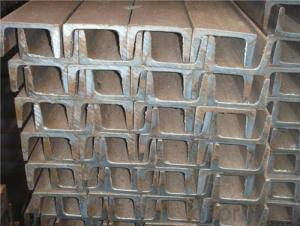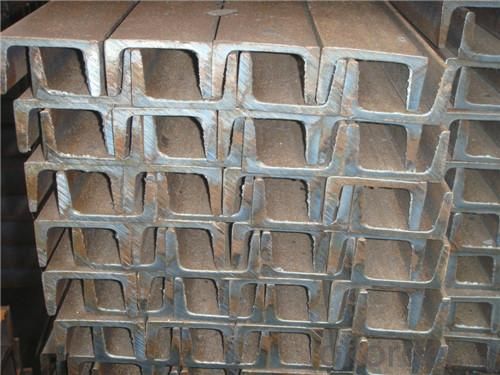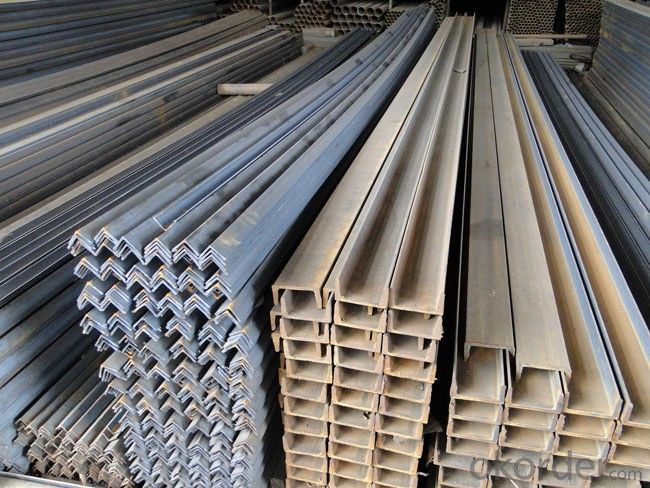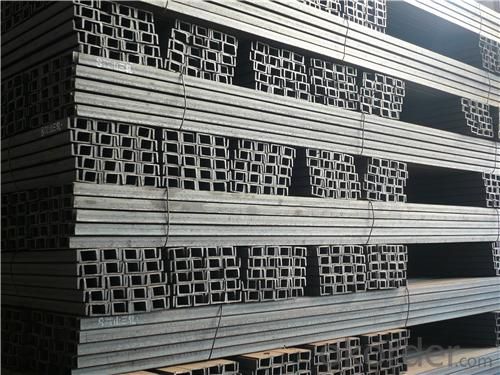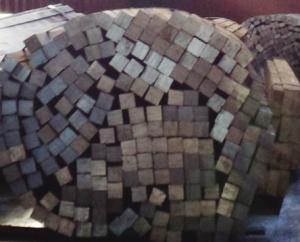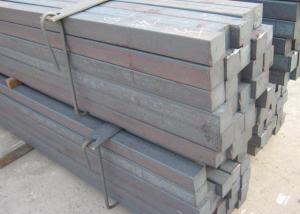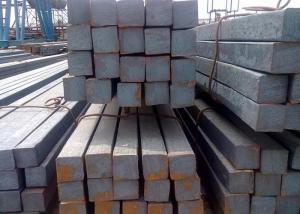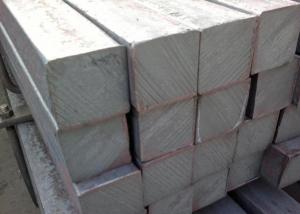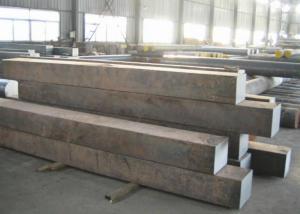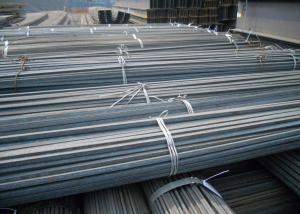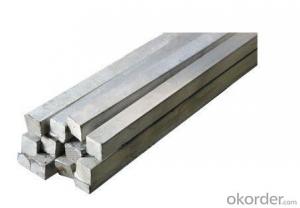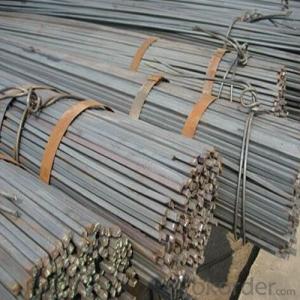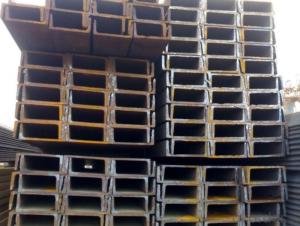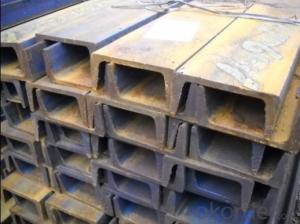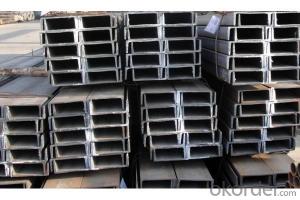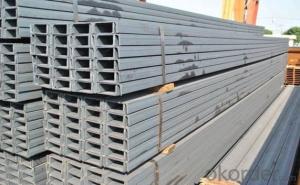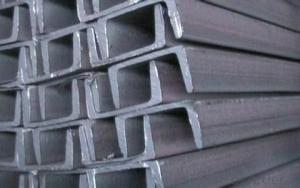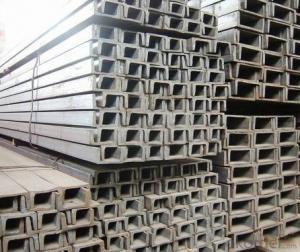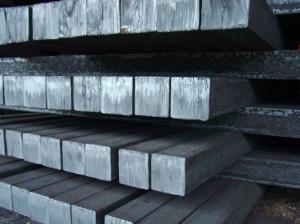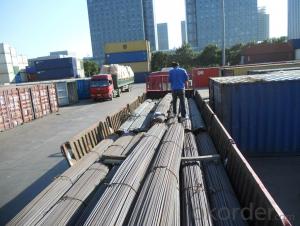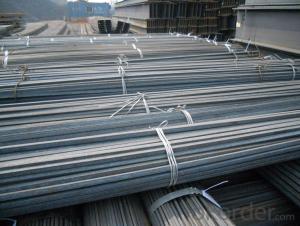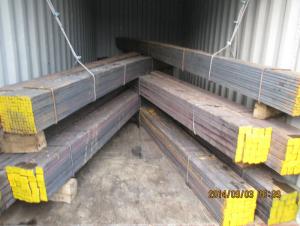80mm*45mm u channel steel for construction
- Loading Port:
- Tianjin
- Payment Terms:
- TT or LC
- Min Order Qty:
- 25 m.t.
- Supply Capability:
- 100000 m.t./month
OKorder Service Pledge
OKorder Financial Service
You Might Also Like
Product Description:
OKorder is offering 80mm*45mm u channel steel for construction at great prices with worldwide shipping. Our supplier is a world-class manufacturer of steel, with our products utilized the world over. OKorder annually supplies products to European, North American and Asian markets. We provide quotations within 24 hours of receiving an inquiry and guarantee competitive prices.
Product Applications:
80mm*45mm u channel steel are ideal for structural applications and are widely used in the construction of buildings and bridges, and the manufacturing, petrochemical, and transportation industries.
Product Advantages:
OKorder's u channel steel are durable, strong, and resist corrosion.
Main Product Features:
· Premium quality
· Prompt delivery & seaworthy packing (30 days after receiving deposit)
· Corrosion resistance
· Can be recycled and reused
· Mill test certification
· Professional Service
· Competitive pricing
Product Specifications:
Specifications of MS Channel:
1.We supply high quality MS Channel at reasonable price, including Chinese standard, Japanese standard and so on.
Standard | GB/JIS |
Material Grade | Q235,SS400 |
Technique: | Hot Rolled |
Sizes as per chinese standard: | 50*37*4.5mm - 300*89*11.5mm |
Sizes as per japanese standard: | 50*25*3mm – 200*80*7.5mm |
Length: | 6meter, 9meter, 12meter |
Note: 1.we are also competent to provide our customers other MS Channel based on other sizes according to customer’s requirements.
2. The length of our ms channel could be cut into other meters as per customer’s requirements. For example, the channel in 6meters could be cut into 5.8meters in order to be fit in the 20ft container.
2. The detailed sections of MS Channel as per GB standard.are shown in the table-1:
GB U CHANNEL | Standard | Sectional | Dimension |
| Mass: |
| (mm) | (mm) | (mm) | (mm) |
|
50X37 | 50 | 37 | 4.50 | 7.0 | 5.438 |
63X40 | 63 | 40 | 4.80 | 7.5 | 6.634 |
80x43 | 80 | 43 | 5.00 | 8.0 | 8.045 |
|
|
|
|
|
|
100x48 | 100 | 48 | 5.30 | 8.5 | 10.007 |
120x53 | 120 | 53 | 5.50 | 9.0 | 12.059 |
140x58 | 140 | 58 | 6.00 | 9.5 | 14.535 |
140x60 | 140 | 60 | 8.00 | 9.5 | 16.733 |
|
|
|
|
|
|
160x63 | 160 | 63 | 6.50 | 10.0 | 17.240 |
160x65 | 160 | 65 | 8.50 | 10.0 | 19.752 |
|
|
|
|
|
|
180x68 | 180 | 68 | 7.00 | 10.5 | 20.174 |
180x70 | 180 | 70 | 9.00 | 10.5 | 23.000 |
|
|
|
|
|
|
200x73 | 200 | 73 | 7.00 | 11.0 | 22.637 |
200x75 | 200 | 75 | 9.00 | 11.0 | 25.777 |
|
|
|
|
|
|
220x77 | 220 | 77 | 7.00 | 11.5 | 24.999 |
220x79 | 220 | 79 | 9.00 | 11.5 | 28.453 |
|
|
|
|
|
|
250x78 | 250 | 78 | 7.00 | 12.0 | 27.410 |
250x80 | 250 | 80 | 9.00 | 12.0 | 31.335 |
250x82 | 250 | 82 | 11.00 | 12.0 | 35.260 |
|
|
|
|
| |
280x82 | 280 | 82 | 7.50 | 12.5 | 31.427 |
280x84 | 280 | 84 | 9.50 | 12.5 | 35.823 |
280x86 | 280 | 86 | 11.50 | 12.5 | 40.219 |
|
|
|
|
|
|
300x85 | 300 | 85 | 7.50 | 13.5 | 34.463 |
300x87 | 300 | 87 | 9.50 | 13.5 | 39.173 |
300x89 | 300 | 89 | 11.50 | 13.5 | 43.883 |
Table-1
3. The chemical composition of HR Channel Steel according to Q235B is shown in Table-2.
Alloy No | Grade | Element(%) | ||||
C | Mn | S | P | Si | ||
Q235 | B | 0.12-0.20 | 0.3-0.7 | ≦0.045 | ≦0.045 | ≦0.3 |
Table-2
Note: we are able to present our customers relevant SGS test report for chemical composition of HR Channel Steel.
4. The mechanical property of HR Channel Steel according to Q235B is shown in Table-3-1 and Table-3-2
Alloy No | Grade | Yielding Strength Point(Mpa) | |||
Thickness(mm) | |||||
≦16 | >16-40 | >40-60 | >60-100 | ||
≧ | |||||
Q235 | B | 235 | 225 | 215 | 205 |
Table-3-1
Alloy No | Grade | Tensile Strength(Mpa) | Elongation After Fracture(%) | |||
Thickness(mm) | ||||||
≦16 | >16-40 | >40-60 | >60-100 | |||
≧ | ||||||
G235 | B | 375-500 | 26 | 25 | 24 | 23 |
Table-3-2
Note: we are able to present our customers relevant SGS test report for mechanical property of MS Channel as customer’s request.
Applications of MS Channel:
The MS Channel can be applied to construction of warehouses, workshops, sport stadiums and car parks etc.The hot rolled channel steel belongs to carbon structural steel which is applied to in the field of construction and machinery.In details, the hot rolled channel steel is usually used for arch-itechtural structure, and they could be welded in order to support or hang a vari-ety of facilities. They are also usually used in combination with I beam. Generally,the hot rolled channel steel we supply must possess perfect welding property, riveting property and mechanical property and so on.
Package & Delivery of MS Channel:
1.The hot rolled channel steel will be packed in bundle with steel wire at each end of every bundle and color marking in order to help the customer to recognize his goods more easily at sight.
2. And the hot rolled channel steel could be loaded into 20ft or 40ft container, or by bulk cargo.If the weight of each bundle reaches more than 3.5 mt, the loading by break bulk cargo should be choosed.When the weight of each bundle reaches less than 3mt, the loading by container should be choosed.
3.As for the transportaion from mill to loading port, the truck will be usually used. And the maximum quantity for each truck is 40mt.
4.All in all, we could do in accordance with customer's request
FAQ:
Q1: Why buy Materials & Equipment from OKorder.com?
A1: All products offered byOKorder.com are carefully selected from China's most reliable manufacturing enterprises. Through its ISO certifications, OKorder.com adheres to the highest standards and a commitment to supply chain safety and customer satisfaction.
Q2: What makes stainless steel stainless?
A2: Stainless steel must contain at least 10.5 % chromium. It is this element that reacts with the oxygen in the air to form a complex chrome-oxide surface layer that is invisible but strong enough to prevent further oxygen from "staining" (rusting) the surface. Higher levels of chromium and the addition of other alloying elements such as nickel and molybdenum enhance this surface layer and improve the corrosion resistance of the stainless material.
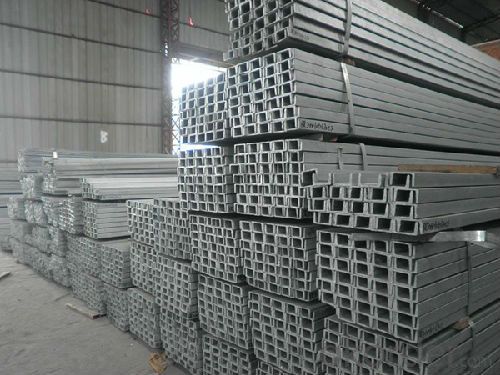
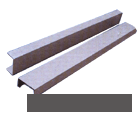
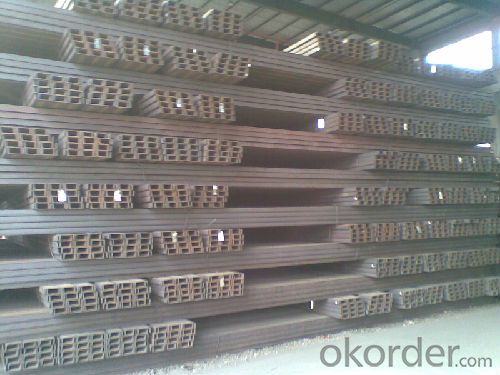
- Q: How do you use a steel square for marking roof valley angles?
- In order to mark roof valley angles using a steel square, there are a few simple steps that need to be followed. Firstly, it is important to ensure that the steel square is clean and free from any dirt or debris that could affect its accuracy. Next, position the steel square against the roof valley in the desired location, ensuring that it is properly aligned with both the edge of the roof and the valley line. Once the steel square is in place, use a pencil or marker to trace along the edge of the steel square onto the roof surface. This will create a clear marking indicating the angle of the roof valley. If there is a need to mark multiple angles along the valley, simply adjust the position of the steel square accordingly and repeat the tracing process. Using a steel square to mark roof valley angles is a precise and effective method, guaranteeing accuracy and consistency in the markings. It is crucial to take the time to double-check the measurements to ensure that the markings are correct before proceeding with any roofing work.
- Q: How do you use a steel square to measure stair treads and risers?
- To use a steel square to measure stair treads and risers, follow these steps: 1. Start by ensuring that your steel square is clean and in good condition. Any dents or damage may affect the accuracy of your measurements. 2. Position the steel square on the edge of the stair tread, aligning the tongue (the shorter arm) with the edge of the tread. Make sure the blade (the longer arm) is flat against the riser. 3. Hold the square firmly in place and mark the measurement on the tread. This will give you the width of the tread. 4. Next, move the square to the riser. Align the tongue with the edge of the tread and the blade with the bottom of the tread above. Again, mark the measurement on the riser. This will give you the height of the riser. 5. Repeat this process for each tread and riser, ensuring that your measurements are accurate and consistent. 6. Once you have measured all the treads and risers, check your measurements to ensure they are within the acceptable range for building codes or the project requirements. Using a steel square to measure stair treads and risers is a straightforward process that can provide accurate measurements. It is important to be precise and consistent to ensure the stairs are safe and meet the necessary standards.
- Q: Can a steel square be used for gazebo roofing?
- No, a steel square cannot be used for gazebo roofing. A steel square is a measuring tool used in carpentry and masonry work, and it is not designed to provide structural support or weather protection like roofing materials.
- Q: Can a steel square be used for checking the verticality of a wall?
- A steel square, also known as a framing square, is not suitable for checking the verticality of a wall. Its primary function is to measure angles and make straight cuts in carpentry. It lacks the necessary design and calibration for determining verticality. In order to assess the verticality of a wall, it is more appropriate to use a level or a plumb bob. A level is equipped with a bubble vial that aids in indicating whether a surface is perfectly vertical or horizontal. On the other hand, plumb bobs consist of a weighted string that hangs from a fixed point. By observing the alignment of the string with a reference point, one can ascertain if the wall is precisely vertical. These tools are specifically engineered for vertical measurements and yield more precise outcomes compared to a steel square.
- Q: What are the common misconceptions about using a steel square?
- Using a steel square can lead to confusion or incorrect assumptions due to a few common misconceptions. One such misconception is that a steel square is solely utilized for measuring right angles. While it is true that a steel square is commonly employed for this purpose, it can also be used for a range of other tasks, including measuring and marking angles that are not 90 degrees. Another misconception is that only carpenters or construction workers make use of a steel square. Although it is indeed a valuable tool in these professions, anyone who deals with measurements and angles can benefit from using a steel square. It is applicable to DIY projects, woodworking, metalworking, and various crafts or hobbies. Some people may also assume that using a steel square is complicated or requires advanced mathematical knowledge. However, this is not the case. With a basic understanding of its components and functions, anyone can easily learn how to utilize a steel square. Beginners can find plenty of online tutorials and guides to assist them in getting started. Lastly, some individuals may believe that a steel square is an outdated or obsolete tool in the era of digital measuring devices. While it is true that there are modern alternatives available, a steel square still offers several advantages. It is durable, reliable, and does not require batteries or calibration. Furthermore, using a steel square can provide a tactile and hands-on experience that many find gratifying. To conclude, the misconceptions surrounding the use of a steel square include its limited application to right angles, its exclusive association with certain professions, the assumption of complexity, and the belief that it is outdated. However, by understanding the versatility, accessibility, and practicality of this tool, these misconceptions can be dispelled, encouraging more individuals to embrace its benefits in various applications.
- Q: What are some common markings found on a steel square?
- A steel square typically contains measurement scales, such as inches, centimeters, and millimeters. These scales are utilized to precisely measure and indicate dimensions on materials. Angles can also be measured or drawn on different surfaces using the angle markings, which generally range from 0 to 90 degrees. Moreover, steel squares often feature markings for rafter lengths, which are significant in carpentry for determining the length of rafters or roof framing components. These markings may appear as numbers or symbols, and their purpose is to guarantee exact and accurate measurements and markings when utilizing a steel square.
- Q: Can a steel square be used for checking the squareness of cabinet drawers?
- No, a steel square is not suitable for checking the squareness of cabinet drawers as it is primarily used for measuring and marking right angles in construction and carpentry. For cabinet drawers, a precision square or a combination square would be more appropriate to ensure accurate measurements and squareness.
- Q: Can a steel square be used for checking the squareness of shelving units?
- Yes, a steel square can be used for checking the squareness of shelving units.
- Q: Are square steel, rectangular tube and angle steel shaped or light steel?
- Belongs to the type steel, also belongs to the light steel. The question you ask is equivalent to whether apples, grapes, or bananas belong to fruit or food
- Q: What are some common safety precautions to follow when using a steel square?
- Some common safety precautions to follow when using a steel square include wearing appropriate personal protective equipment (such as safety glasses and gloves), properly securing the workpiece, ensuring the steel square is clean and in good condition, using the square on a stable and level surface, and being cautious of sharp edges. It is also important to handle the steel square with care to avoid injury, and to follow any specific safety guidelines provided by the manufacturer.
Send your message to us
80mm*45mm u channel steel for construction
- Loading Port:
- Tianjin
- Payment Terms:
- TT or LC
- Min Order Qty:
- 25 m.t.
- Supply Capability:
- 100000 m.t./month
OKorder Service Pledge
OKorder Financial Service
Similar products
Hot products
Hot Searches
Related keywords
